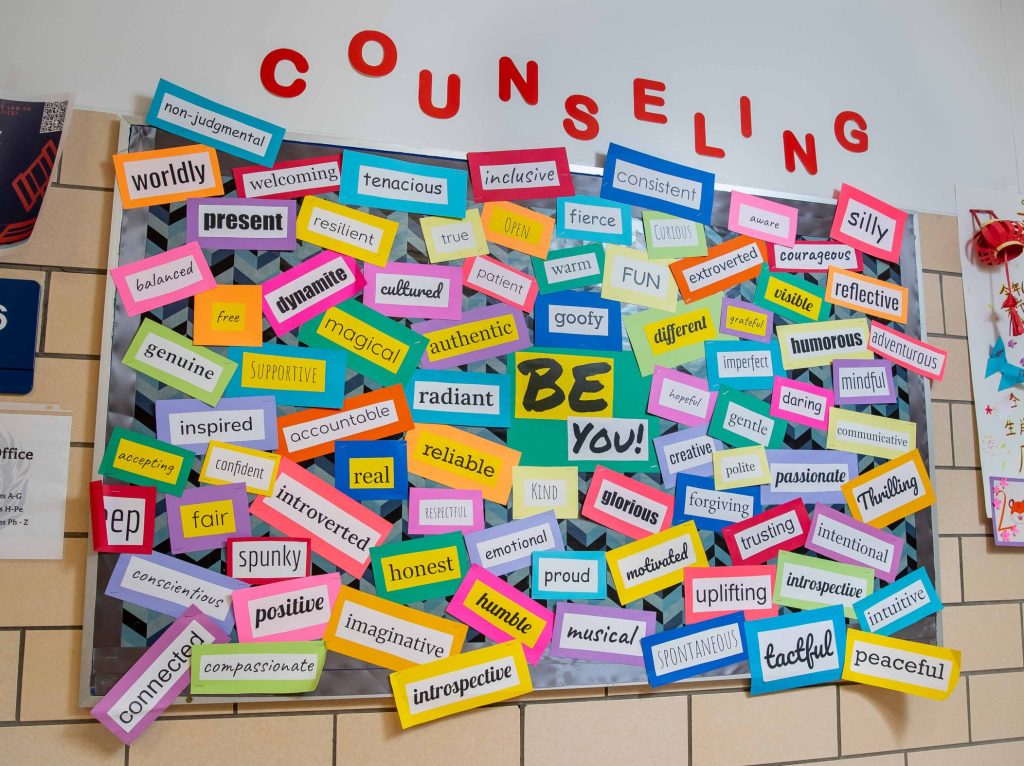
School counselors perform the following roles in order to promote students’ positive development in academic, career and personal/social domains:
As academic advisers, our counselors are committed to helping all students fulfill their potential while at DCIS and to ensuring their success after they graduate, whether they go to college, enter the workforce or military, or pursue other interests. Specifically, our counselors:
Our counselors also meet one-on-one with students related to any number of interpersonal concerns, which vary considerably between middle schoolers and high schoolers, and even between students in the first two versus the last two years of high school. That’s why we have counselors dedicated to each level:
With training in child and adolescent development, learning strategies, self-management and social skills, our middle school counselors are well-equipped to support students through this important developmental period by giving them the skills they need to succeed academically, socially and emotionally.
Working together with the student, parent(s) or guardian(s), teachers, and administrative or other support staff, our middle school counselors strive to support all students in the way that works best for them — ideally leading to improved academic and behavioral performance and, ultimately, to happier kids.
Middle school marks students’ passage from childhood to adolescence, which can be both exciting and challenging for students as well as their parents and teachers. That’s because middle school students typically:
Text adapted from the American School Counselor Association.